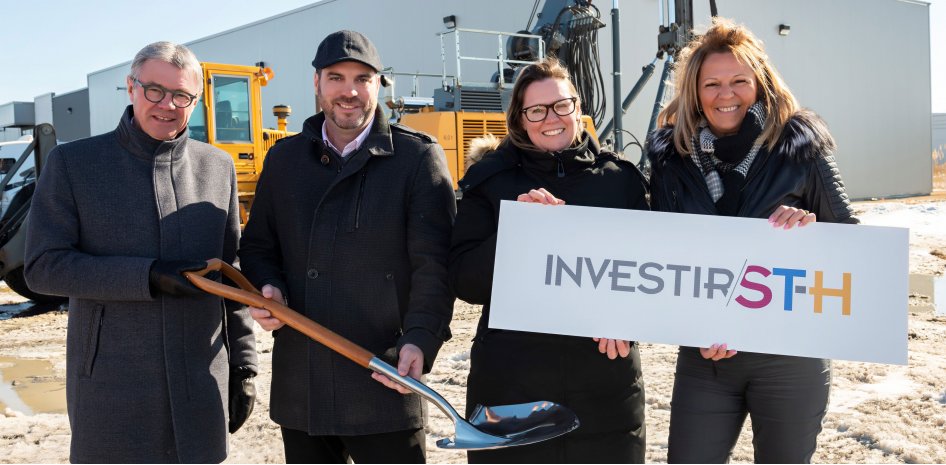Saint-Hyacinthe Technopole announced a new construction project in Saint-Hyacinthe’s Olivier-Chalifoux industrial park. Groupe DCL revealed the details of a $3-M investment to expand its Maskoutan facilities and immediately broke ground on its project.
The construction, which will take until June of this year, will add 20,000 square feet to the existing plant. The expansion became necessary due to the increased production of non-medicated additives and growing client demand for storage. In addition to distributing and manufacturing animal nutrition and health products, DCL also offers adapted storage services for the food, pharmaceutical and industrial sectors.
“We’ve expanded our activities at our clients’ request, namely product storage. This has led to strong growth, which is why we’ve decided to set ourselves apart with more modern spaces that will meet the strictest tracking and traceability standards,” explained Martin Grégoire, DCL’s president.
The new spaces will have 50-foot clearance and will be equipped with technology to ensure exemplary reliability and maximized volume. “After the expansion, we will be able to handle 72,000 pallets per year, up from 24,000,” Mr. Grégoire added. “We will also be able to serve our clients more quickly. Thanks to a computerized warehouse management system, we will be able to better manage our warehouse and have a clearer idea of the quantity and quality of what we have in stock. This will help optimize the order preparation process and improve traceability.”
This considerable investment will also enable Groupe DCL to continue developing its product manufacturing and distribution activities. By increasing its performance and becoming more competitive, it will be able to start exporting. To reach this goal, the company intends to create about 15 short- and medium-term jobs, which will double its workforce.
Groupe DCL was formed in 1996. It manufactures and distributes very high-quality non-medicated additives for animals such as enzymes, probiotics, prebiotics and minerals, as well as disinfectants, aromatic compounds and plant extracts. Its products are mainly designed for the swine, poultry and ruminant industries and aim to improve animal health while fighting antibiotic resistance—one of the major public health problems of the 21th century, a sanitary issue for breeding industries and a food safety issue for consumers.


